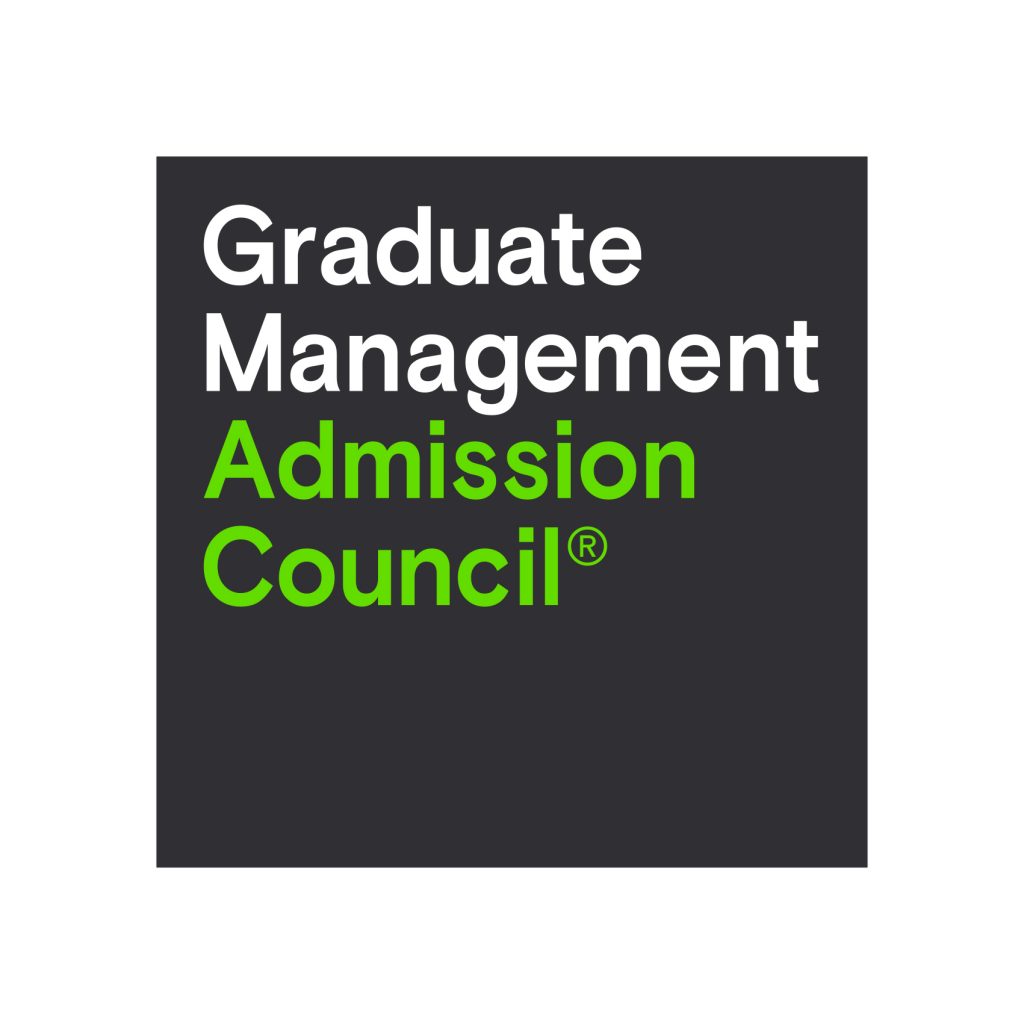Why GMAT can benefit your university
WHY GMAT CAN BENEFIT YOUR UNIVERSITY
The Graduate Management Admission Council (GMAC) provides a wide range of products, research and resources to quality management education institutions. GMAC administers the GMAT® exam, the premier standardised test developed for and used by business schools which allows admissions professionals to assess applications and reliably predict the candidate’s likelihood of academic success on their programmes. GMAC’s mission to connect management talent to Schools is supplemented by a range of research and data services and professional development programmes that allow institutions to take a broad view of the current graduate management education market place in order to identify trends and new opportunities. Its GMASS® student search services allows institutions to target with precision the types of candidates that they may wish to have apply to their programmes. Likewise candidates can compare degree programmes via the School Finder feature on the gmat.com website. In Europe GMAC’s work is provided and supported by their London-based team.
If you are not currently accepting the GMAT and are looking for further information on how to accept the test, please contact us.
FAQs ABOUT THE GMAT EXAM
Admissions professionals use the GMAT as a useful benchmark to assess candidates from a wide range of academic programmes, undergraduate majors and varying levels of professional experience. The exam gives an accurate, consistent and objective measure of a candidate’s ability to:
- think critically and apply higher order reasoning skills
- analyse and make decisions based on data from multiple sources
- write clearly and effectively
- study and perform academically
- remain focused for an extended period of time
- solve problems
- evaluate arguments and take an informed position
- prioritise time and effort, and perform under intense time pressure.
What is the format of the GMAT and how long does it take?
The GMAT exam is conducted entirely in English and is administered on a computer at a GMAT approved test centre. The questions are divided into four compulsory, separately timed sections, with two optional timed breaks:
- Analytical Writing Assessment (AWA): one 30-minute essay. Score scale: 0-6, in 0.5 intervals.
- Integrated Reasoning: 12 questions over 30 minutes. Score scale: 1-8, in single-digit intervals.
- Quantitative Section: 37 multiple-choice questions over 75 minutes. Score scale: 0-60, in single-digit intervals.
- Verbal Section: 41 multiple-choice questions over 75 minutes. Score scale: 0-60, in single-digit intervals.
The GMAT Total score (200-800) is based on performance on the Quantitative and Verbal sections.
Do students need business knowledge, a high standard of English or maths to take the GMAT exam?
No. The GMAT exam assesses academic potential and does not assume any business knowledge or advanced English or maths skills. Students from different undergraduate majors and backgrounds take the GMAT to test their analytical and reasoning abilities in writing, reading, and quantitative areas.
- The AWA section measures the ability to analyse the complexities of an argument and formulate a well-reasoned critique.
- The Integrated Reasoning section measures the ability to evaluate data from different sources (graphics, table and texts) and organise, combine and manipulate the data to see relationships that solve multiple and inter-related problems.
- The Verbal Reasoning section assesses the ability to comprehend and draw inferences from written material, to evaluate arguments, and to make corrections to conform to standard written English.
- The Quantitative section uses high school level arithmetic, elementary algebra, and commonly known geometry concepts to test candidate’s ability to reason quantitatively, solve quantitative problems and interpret data. It measures the skills used in quantitative-based subjects such as finance, accounting and managerial statistics.
How can the GMAT help me in my admission decisions?
You can use the results of the GMAT exam as part of your admissions decisions to predict who will succeed on your programme, and who might be at risk for academic difficulty. Unlike grade point averages which can vary according to the grading standards of each school, GMAT scores are based on the same standard for all test takers. The exam is administered under standard conditions around the world, with high security, to ensure that scores are comparable across all applicants. Once you start using the GMAT for your programme, you can also take advantage of our free Validity Study Service (VSS), which will show you the relationships between test scores and academic performance.
Do I need to use the GMAT as a mandatory requirement?
No. We are aware that schools may have different needs and objectives and we encourage you to use the GMAT in a way that works for you. We would be happy to work with you to assess your goals and suggest how you may introduce the GMAT as part of your admissions decisions to attract a diverse pool of applicants and select a strong class. Becoming a GMAT score-report recipient only requires the completion of a free, short online form. When you are approved and have been assigned your GMAT programme code, your school will be added to a database that test takers use to select their score-report recipients. Your programme will also be profiled on gmat.com, our site dedicated to prospective graduate management education students.
How can I access the GMAT scores of my applicants?
Official GMAT score reports are available to the test taker and his or her designated score-report recipients (business schools) within approximately three weeks after the test date. When test taker selects your programme, their score will be sent to you electronically via the GMAT score reporting website. The Official GMAT Score Report shows five scores: Total, Analytical Writing Assessment (AWA), Integrated Reasoning, Verbal and Quantitative, the most recent AWA essay responses, and helpful background information such as citizenship, undergraduate degree and GPA. In cases of repeat testing, the Score Report will show all of the GMAT scores for the past five years.
How can I benchmark and compare GMAT scores for candidates with similar attributes?
You can use the GMAT Benchmarking tool, which is available on gmac.com, to compare candidates’ scores by region/country of citizenship, gender and GPA. The tool can help you with admissions decisions in many scenarios: for example, when you are assessing applicants for the final places to round up your class profile; or you may wish to compare the scores of a candidate from a specific citizenship group against the mean scores achieved by test takers from the same region or country for scholarship decisions. You can also download the Profile of GMAT Candidates, which summarises GMAT data over five testing years and provides tables with GMAT volume and means by citizenship, residence, gender and undergraduate degree major.
Do you provide any support or training on how to use and interpret GMAT scores?
We are always happy to support GMAT-using schools. A member of the team will be available for a session with your admissions, academic or marketing colleagues, before or after you have decided to start using the GMAT. By using the GMAT in your admissions decisions, you will also have access to the research, resources and professional development opportunities offered by the Graduate Management Admission Council (GMAC), a non-profit association of business schools and the owner of the GMAT. The GMAT Exam is:
– Used by more than 6,000 graduate business programmes at nearly 2000 schools around the world
– Accessible year-round at approximately 600 test centres worldwide
For more information, go to gmac.com
© 2014 Graduate Management Admission Council® (GMAC®). All rights reserved. The GMAT logo and GMAT Focus™ are trademarks and GMAT®, GMATPrep® and Graduate Management Admission Test® are registered trademarks of the Graduate Management Admission Council in the United States and other countries.
For more updates, follow us!





